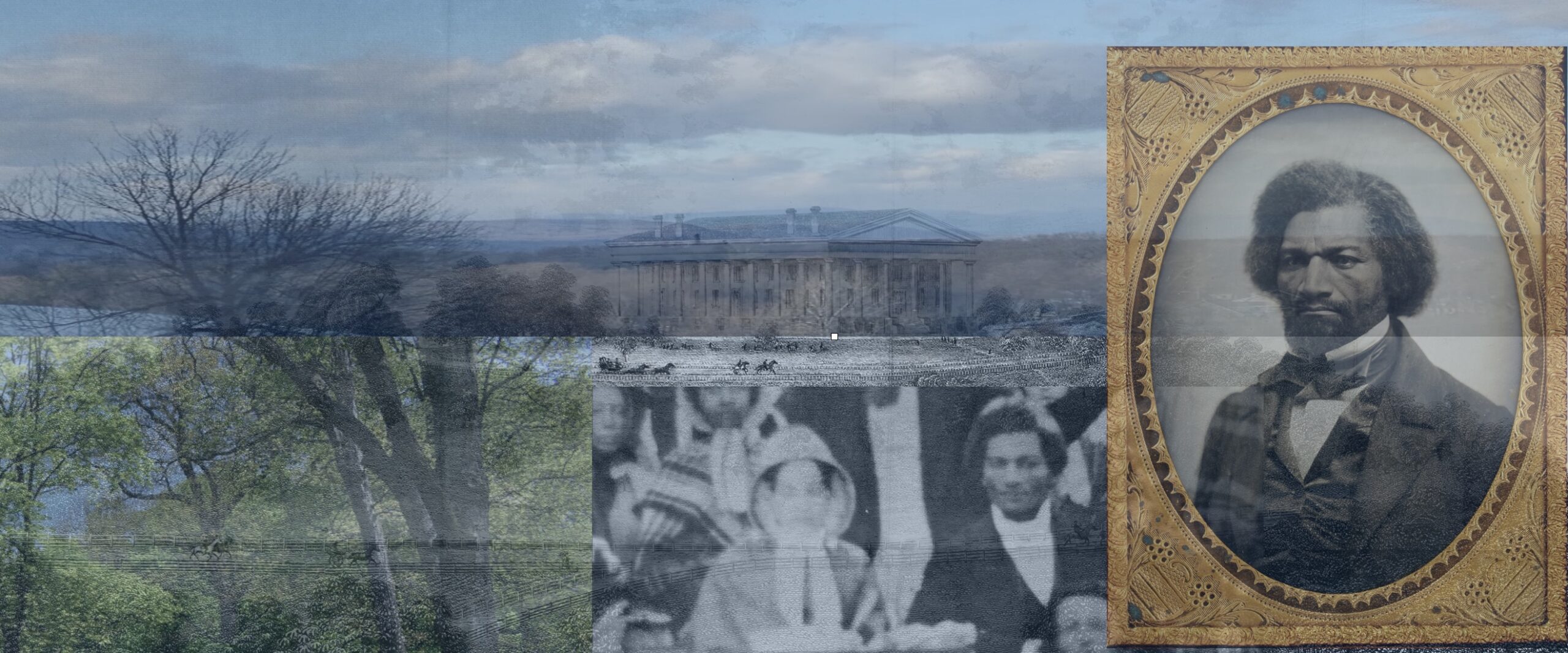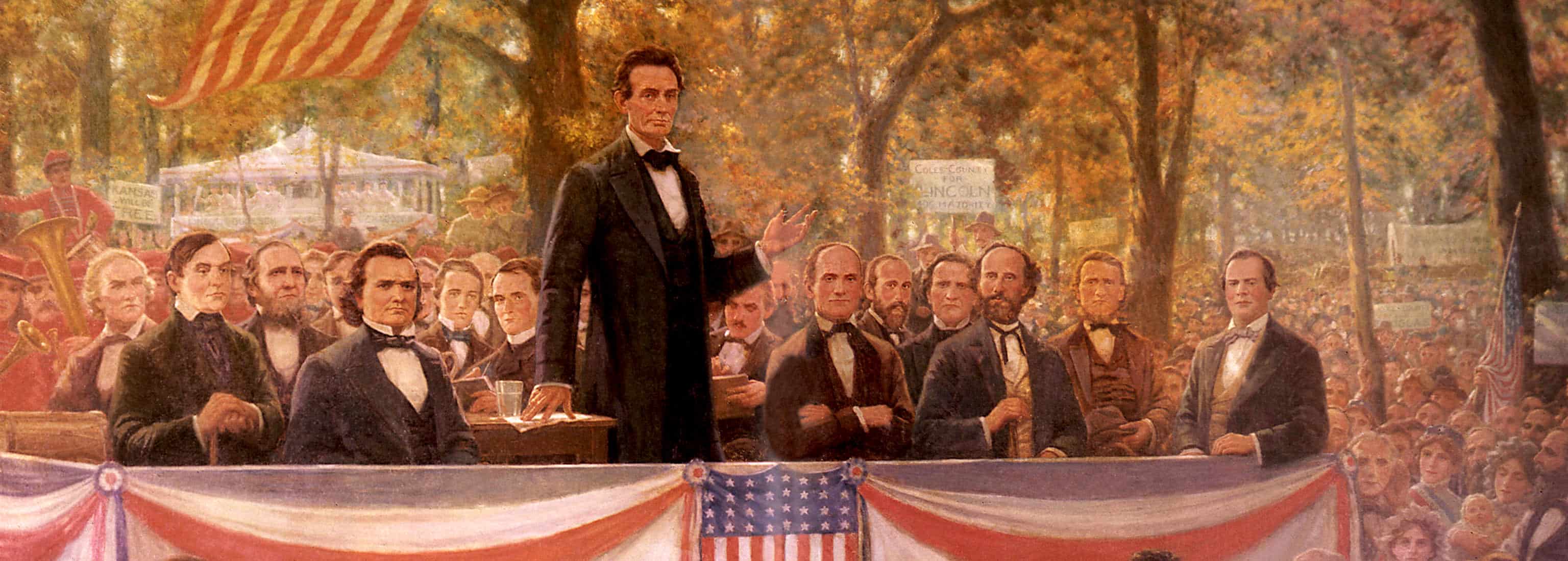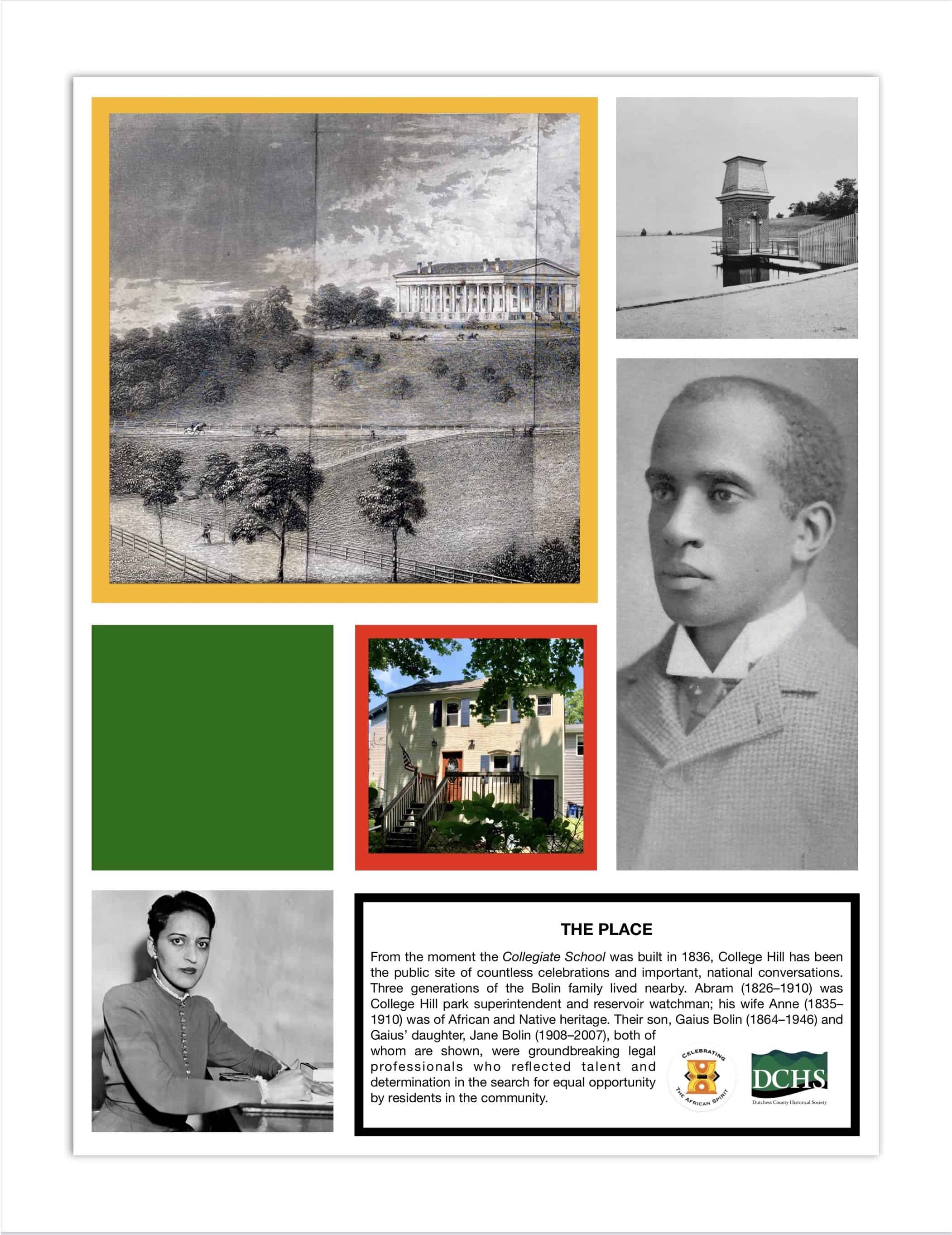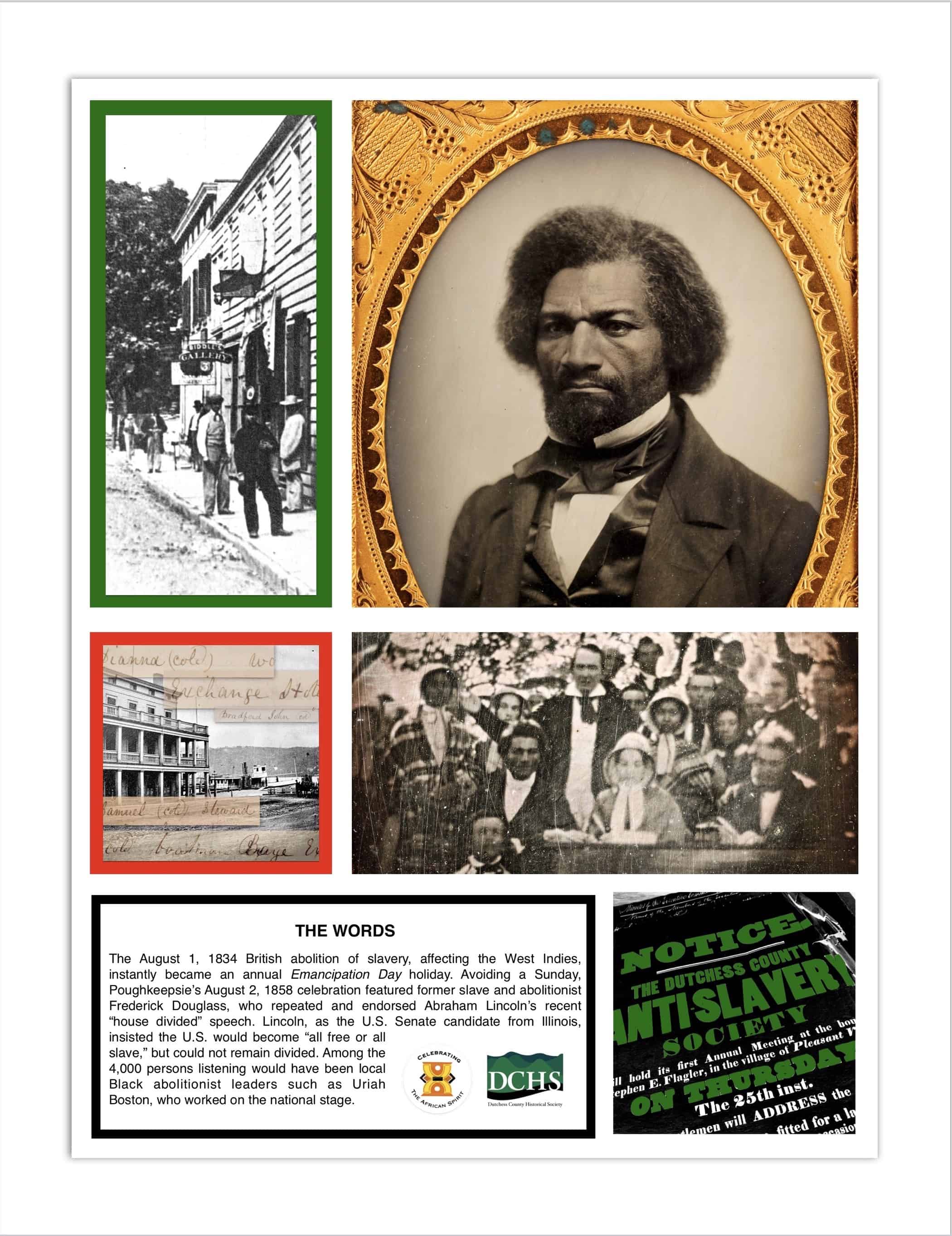By Bill Jeffway.
A version of this article appears in the July 14, 2021 issue of the Northern/Southern Dutchess News / Beacon Free Press.
There was never a more pivotal moment in our country’s history than the moment when the renowned escaped slave, abolitionist, author, publisher and speaker Frederick Douglass galvanized an audience of several thousand people for two hours in Poughkeepsie in August of 1858. There was never a more profound question before our country than the question raised by Frederick Douglass that day.
On the one hand, slavery was in decline in the country and the world. New York State had abolished slavery in 1827. Thousands were gathered that beautiful summer day, Monday, August 2, 1858, in the shady woods on the western slope of College Hill known as College Grove, to recognize the August 1, 1834 abolition of slavery by Great Britain, affecting the British West Indies. Celebrations were delayed by a day to avoid competing with Sunday Church services.
Read Douglass’ full speech right:
On the other hand, 4 million men, women and children remained enslaved in the US south. Debates over the slave status of new states and territories, such as Kansas, had the potential to see slavery expand in the US. Harsher laws, such as the 1850 Fugitive Slave Law, created greater penalties for those in free states, like New York, who did not actively aid in the return of “runaway” slaves.
The abolitionist speaker, author, and publisher, Frederick Douglass spoke to a crowd of several thousand at Poughkeepsie’s College Hill in August 1858, injecting himself into the national conversation about slavery.
Public speeches became milestones in the national dialogue. In his Poughkeepsie speech, Douglass quoted from the famous speech given two months earlier by the Republican US Senate candidate from Illinois, Abraham Lincoln, “A house divided against itself cannot stand.” Lincoln gave the speech in June of 1858 upon accepting the nomination of his party to run for the US Senate. Lincoln warned that the US would become all free, or all slave, but would not remain divided. Frederick Douglass was not shy about his support for Lincoln, and his contempt for Lincoln’s opponent in the Senate race, Steven A. Douglas. (Frederick Douglass made jokes about the similarities in their names).
Like a relay race, a few weeks later in the fourth of the famous Lincoln/Douglas debates in September of 1858, Stephen Douglas confronted Lincoln with Frederick Douglass’s Poughkeepsie words, saying it revealed Lincoln as a supporter of “negro equality and negro citizenship.” Lincoln lost the election November 2. But many believe that the performance of the Republican party in general, and the national attention Lincoln received in 1858 in instances such as Douglass’s speech in Poughkeepsie, allowed for Lincoln to win the US Presidency in 1860.
Like a relay race, a few weeks later in the fourth of the famous Lincoln/Douglas debates in September of 1858, Stephen Douglas confronted Lincoln with Frederick Douglass’s Poughkeepsie words, saying it revealed Lincoln as a supporter of “negro equality and negro citizenship.” Lincoln lost the election November 2. But many believe that the performance of the Republican party in general, and the national attention Lincoln received in 1858 in instances such as Douglass’s speech in Poughkeepsie, allowed for Lincoln to win the US Presidency in 1860.
The United States did not see slavery legally abolished until January 1863 with the Emancipation Proclamation. Full abolition was not realized until the June 19, 1865 freeing of slaves in Texas, recently created as the national holiday, Juneteenth. It was the adoption in 1870 of the 15th US Constitutional Amendment that finally guaranteed citizenship to Persons of Color.
The day of the speech was reported to be bright, sunny, bustling, and noisy with music and cheers. People came from up and down the Hudson River valley. The sunrise was greeted with the firing of 24 guns. Each gathered in their respective Churches to pay respects at 8 am, church bells rang as steamships approached the docks from north and south, and extra trains and train cars carried people to Poughkeepsie station. A procession of men, women, and children started at the location of the AME Zion Church (then on Catharine Street) and marched to the docks to welcome Douglass, who arrived by steamboat. Everyone parted to make way for his carriage as he headed to College Grove, the western slope of College Hill that remains wooded today at North Clinton Street.
The group dedicated to illuminating the local history and contributions of Africans and their descendants, Celebrating the African Spirit, is hosting a monumental tribute to Douglass’s 1858 speech on Sunday, August 1 at the College Hill hilltop pavilion.
The actor, Paul Oakley Stovall, after portraying George Washington in the first national tour of Hamilton: An American Musical by Lin Manuel-Miranda, became fascinated by Frederick Douglass. He has travelled around the country, and recently to Ireland, to study Douglass. Stovall will return to the original site where Douglass spoke in 1858, although the exact location of the performance will be the more accommodating hilltop pavilion, not the grove. Stovall will recite portions of that speech for approximately 30 minutes. The event will open with a rousing procession by Souls United of Hudson Valley, an interfaith gospel choir, and the Center for Creative Education’s Percussion Orchestra of Kingston, a multicultural youth ensemble.




